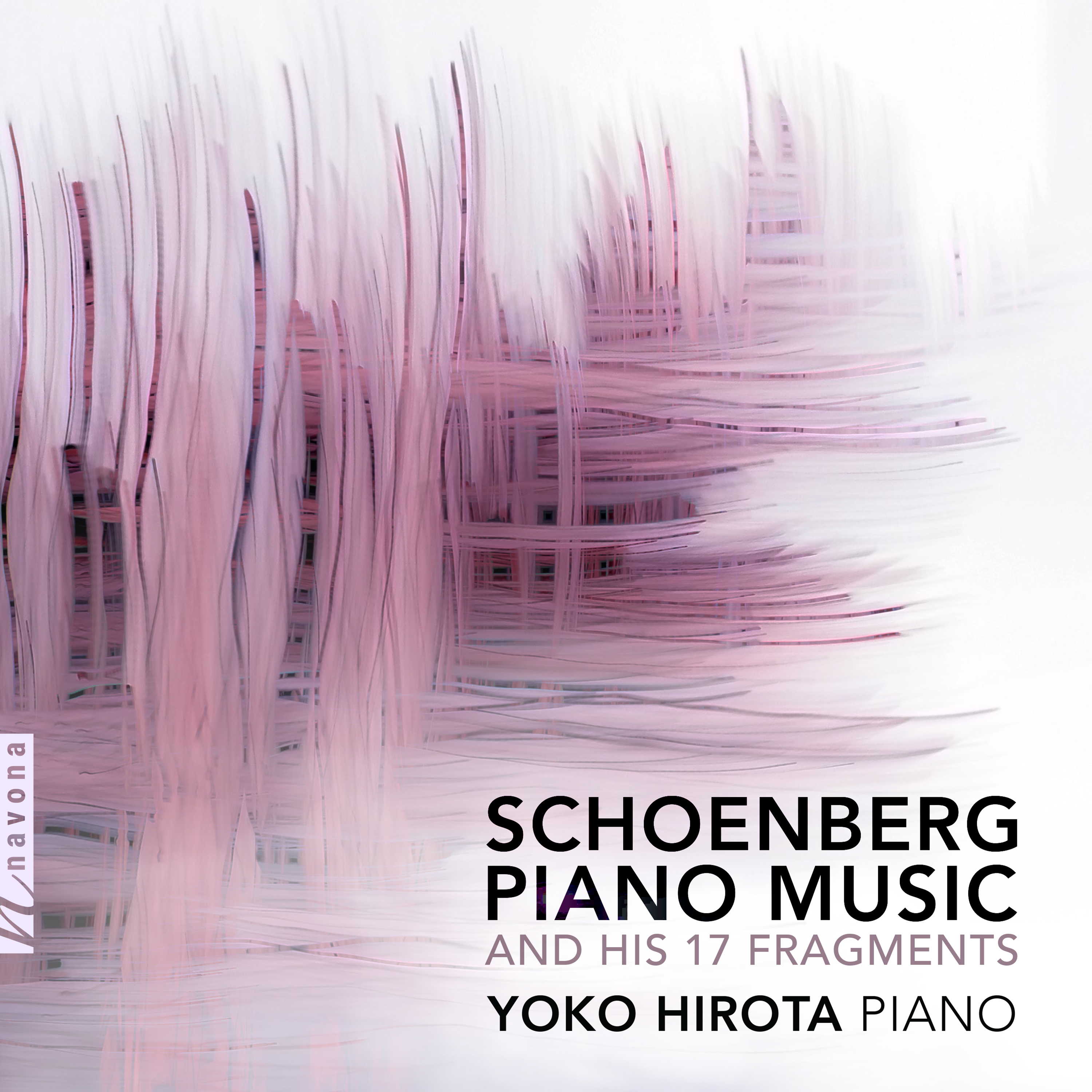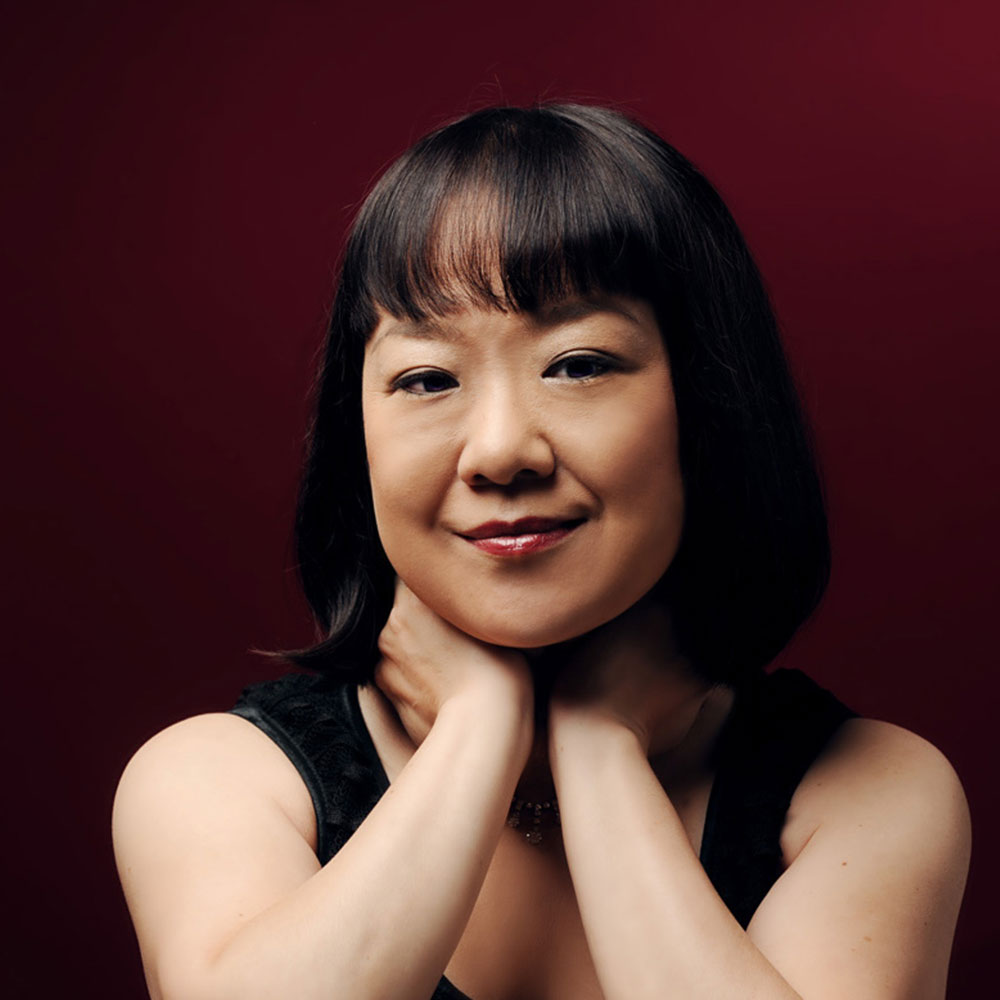
Having been praised by the press as “precise and keenly projective” and demonstrating “the highest level of proficiency,” Japanese-Canadian pianist Yoko Hirota is considered one of the leading interpreters of contemporary piano repertory of her generation. Yoko received her doctoral degree in piano performance under Louis-Philippe Pelletier at McGill University. She is a strong advocate of contemporary music, has appeared in recitals frequently, and has received prestigious grants from the Ontario Arts Council and the Canada Council for the Arts. At the 1996 Clara Liechtenstein Piano Competition (Montréal), a Special Mention Prize was especially created to distinguish her excellence in the interpretation of 20th-century repertoire.
Yoko released five albums with grants awarded by Canadian arts organizations at both federal and provincial levels. All of her albums focus on contemporary classical music and received rave reviews from Wholenote, Musical Toronto, and The Globe and Mail. Three of her albums exclusively consist of music by contemporary Canadian composers, released by the recording label Centrediscs. She is currently Professor of Piano at the Music Department of Laurentian University in Ontario Canada and co-founder and co-artistic director of 5-Penny New Music Concerts.
Today, Yoko is our featured artist in “The Inside Story,” a blog series exploring the inner workings and personalities of our artists. Read on to learn more about one of Yoko’s performances which featured a few firefighters…
What was your most unusual performance, or the most embarrassing thing that happened to you during a performance?
During one of my doctorate recitals in Montreal, a fire alarm started and we all had to evacuate from the recital hall. After 30 minutes, we were allowed to resume my recital, but several firemen with yellow coats were still on the sides of the stage, and the stage had white smoke about 50 cm high. I felt like I was a rock star instead of a classical pianist!
If you could make a living at any job in the world, what would that job be?
A pianist of the Ensemble intercontemporain, which is a world-renowned ensemble of 31 full-time musicians dedicated to performing and promoting contemporary chamber music in Paris. Pierre Boulez was the founder and conductor of the ensemble. I would have liked to have been in the ensemble when he was the conductor.
If you could spend creative time anywhere in the world, where would it be and why?
Paris and Budapest. I did my residency at IRCAM’s multidisciplinary festival and academy, ManiFeste, for two summers in Paris. I also studied in Hungary with renowned pianists such as Gábor Eckhardt and Gábor Csalog. Both cities and the musicians were so inspiring to me. I will always feel stimulated and energized by the two cities.
If you could instantly have expertise performing one instrument, what instrument would that be?
Cello. However, traveling with cello would be a lot of work for me since I am small… I like being a pianist, and the only things I need to carry are the scores, although we need to adjust to the piano at every recital venue.
What was your favorite musical moment on the album?
The 17 fragments. If you listen to them from No. 1 to No. 17, you can hear the gradations of musical languages from tonal – atonal – 12-tone techniques. The 17 fragments span the composer’s entire life, so each one demonstrates his experiments with the 12-tone techniques which he finally accomplished. I loved the musical kaleidoscope of these 17 fragments.
What does this album mean to you personally?
This album is the re-edited version of my first album of the same title. I first found the 17 fragments at the Schoenberg Archive in Vienna, Austria, and was fascinated by these fragments. I worked on the pieces of the album for three years, and had an opportunity to study with the German pianist Herbert Henk, who first recorded the 17 fragments. After this album was published, I was invited to give a lecture recital on the 17 fragments at the Schoenberg Symposium where all three children of Schoenberg were present. They complimented my lecture-recital and subsequent recital of Schoenberg’s music. This also led to an invitation to contribute a chapter to the book Schoenberg’s Chamber Music, Schoenberg’s World. I am very happy that this album has been “resurrected” by this collaboration with PARMA Recordings and that it will be available in the world.

SCHOENBERG PIANO MUSIC AND HIS 17 FRAGMENTS is now available for streaming or purchase through Navona Records. Click here to explore this new album.

Having been praised by the press as “precise and keenly projective” and demonstrating “the highest level of proficiency,” Japanese-Canadian pianist Yoko Hirota is considered one of the leading interpreters of contemporary piano repertory of her generation. Hirota received her doctoral degree in piano performance under Louis-Philippe Pelletier at McGill University. Grants from the Canada Council for the Arts allowed her to study in Europe, with Gabor Eckhardt in Hungary, Herbert Henck in Germany, and Florent Boffard in France.
